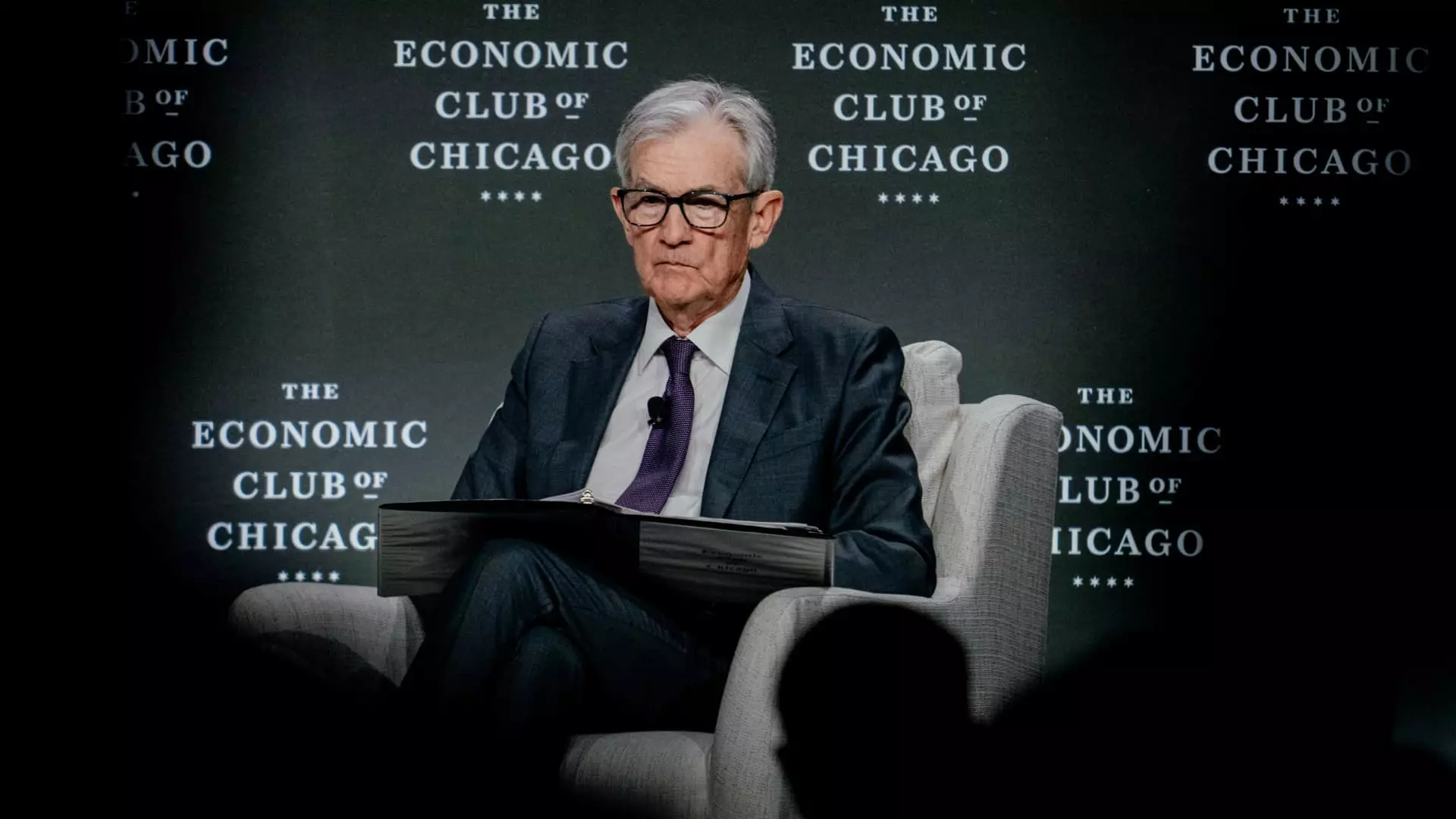In a move that could only be described as political theatrics on a grand scale, former President Donald Trump has once again positioned himself against the Federal Reserve and its Chairman, Jerome Powell. This latest episode echoes a wider theme frequently displayed during Trump’s presidency: an alarming tendency to undermine independent institutions for personal or political gain. When Trump labels Powell as a “major loser” and demands immediate interest rate cuts to bolster the economy, it’s not merely an economic statement; it’s a politically charged ultimatum.
Trump’s fixation on the Federal Reserve is indicative of a broader issue: a misunderstanding—or perhaps willful disregard—of how financial markets operate. By insisting that the economy is free from inflation and urging “preemptive cuts” in interest rates, he showcases a startling naiveté about fiscal policy. This one-dimensional approach to economic management could easily have catastrophic repercussions. Anyone with a basic grasp of economics knows that such reckless pressure undermines the Federal Reserve’s autonomy, which is essential for maintaining market stability.
The Illusion of Economic Success
Trump’s claim that there is “virtually No Inflation” stands in stark contrast to the lived experiences of average Americans. While he points to declining energy prices and falling costs in “most other things,” it is crucial to recognize that economic health cannot be assessed through the lens of selective indicators. Gas prices may drop, but soaring costs in healthcare, housing, and education elusive the quality of life for many citizens. This selective outlook is misleading and fosters a false sense of security.
To demand interest rate cuts based on an oversimplified perspective of inflation undermines the nuanced work that the Federal Reserve performs. Powell’s cautious stance—indicating a preference for waiting until clarity emerges before making policy changes—reflects a prudent understanding of the delicate balance that requires management. Unfortunately, Trump’s antagonism against Powell perpetuates a chaotic narrative that further complicates governance and sends ripples of uncertainty throughout the financial landscape.
The Dangers of a Disengaged Market
In the wake of Trump’s latest tirade, market reactions have verified the fragile state of investor confidence. The swift drop in indices like the Dow and Nasdaq signifies more than just dissatisfaction; it reflects a growing anxiety regarding the unpredictability of U.S. economic leadership. More significantly, a potential move by Trump to dismiss Powell would set a dangerous precedent. It would not only be a blatant power grab but also a profound attack on Fed independence, raising red flags about the integrity of economic policymaking.
Witnessing how financial markets respond to political interference is unnervingly predictable. Should the president try to invalidate Powell’s tenure, we would likely see a sharp sell-off in equities, with higher yields and a depreciating dollar. The fear of political meddling casts a long shadow over investor decisions, prompting them to flock to safe-haven assets like gold, and as we saw, driving the commodity prices to record highs. This knee-jerk reaction is a reflection of a deeper crisis—one where economic policy becomes secondary to political posturing.
The Perils of Political Theater in Economics
Moreover, this situation prompts reflection on the broader implications of a politically charged economy. Trump’s tactics not only endanger the financial market but risk the trust that is integral for efficient economic management. The sanctity of institutions like the Federal Reserve must be preserved, lest we witness a vicious cycle of volatility exacerbated by political whims, where sound economic practices are sacrificed at the altar of populist sentiment.
With Powell suggesting that the potential fallout of tariffs could hinder growth, we arrive at an irony; the very actions Trump takes to insulate the economy may, in fact, backfire spectacularly. In turn, a leadership style that prioritizes spectacle over substance runs the risk of leading to an economically engineered downfall, one that could reverberate through households and businesses alike. The charge that undermines our central bank could very well be the dagger that plunges into the heart of a fragile economy.
This president had the audacity to call upon Powell to act as though economic complexities can be distilled into simplistic tropes. Yet as history has often revealed, it is rare for such erratic strategies to yield fruitful outcomes. Rather, they pave the way for uncertainty—anathema to growth and stability. As citizens, we must remain vigilant against trends that seek to manipulate our economic future for the sake of fleeting political gains.

